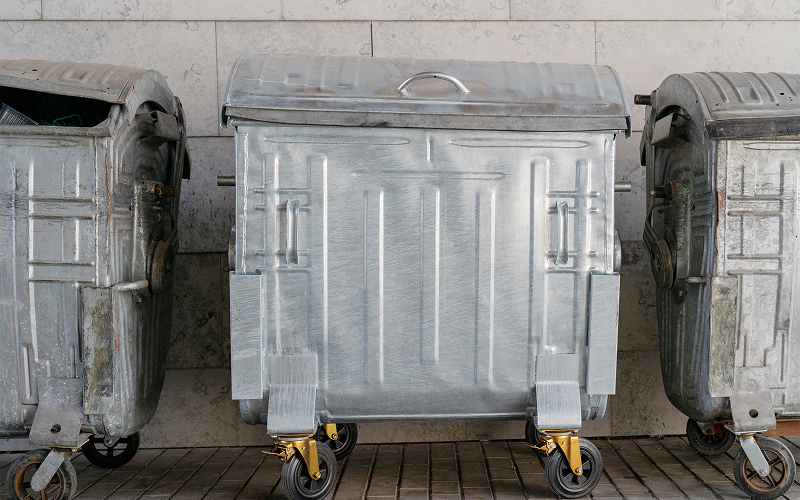
7 Ways to Choose the Right E-Waste Partner in Singapore
November 2, 2025Selecting an e-waste recycling business in Singapore ought to be simple. Clear standards, safe logistics, and honest reporting protect people and the planet while keeping budgets predictable. This guide explains what to check so procurement, facilities, and sustainability teams can compare services. Treated as a repeatable process, e-waste recycling in Singapore becomes easier to scale across sites, and audits become calmer year after year. Build a shortlist of two vendors, visit a live collection, and tour their facility to see how assets move from intake to treatment.
1. Verify Licences and Compliance
Ask for current NEA licences, transport permits, and proof of compliant storage. A credible provider shows chain-of-custody steps, from pickup seals to weighbridge records. Request a sample manifest and a destruction certificate that lists serial numbers. When a partner proves legal control at every handover, e-waste management in Singapore becomes defensible under internal and external review. If your sites handle batteries or lamps, confirm specific handling procedures and emergency plans. Ask for two client references in your sector and ask how the provider handled a recall.
2. Check Data Security at Every Step
Devices often hold sensitive information. Confirm data-wiping standards such as NIST or equivalent, and ask whether wiping occurs on-site or at a secure facility. For drives that must not leave the building intact, require degaussing or shredding with witnessed verification. A careful e-waste recycling company in Singapore documents the method, batch ID, operator name, and time stamp for each unit. Request sample sanitisation reports and verify technician vetting.
3. Evaluate Standards for Reuse and Material Recovery
Sustainability improves when equipment is reused before it is recycled. Ask how the vendor triages assets for refurbishment, parts harvesting, or certified recycling. Review end-market audits for plastics, boards, and metals. Responsible e-waste recycling in Singapore tracks where commodities go and avoids informal processors that create environmental or health risks. Compare stated reuse and recycling targets with last year’s actual outcomes.
4. Inspect Packaging, Collection, and Transport
Damage and spillage raise risk and cost. Check the quality of bins, antistatic liners, and labels. Drivers should carry spill kits and PPE. Confirm photographic proof at pickup and delivery. When collection is disciplined, e-waste management in Singapore stays safe for people on-site and for road users. For multi-site portfolios, agree on booking SLAs and a standard pickup window.
5. Compare Reporting, Evidence, and ESG Fit
Reports must help you act. Ask for dashboards that show volumes by site, device type, and date, plus monthly certificates of treatment. Ensure reports export to CSV for audit and ESG platforms. A trustworthy e-waste recycling company in Singapore provides year-end summaries that align with your carbon and waste disclosures. If your reporting follows GRI, confirm how the vendor maps evidence to required fields and provides audit-ready files. Request a hotspot analysis so teams can change buying or disposal behaviour.
6. Test Pricing Transparency and Forecastability
Quotes should separate logistics, treatment, data sanitisation, and any revenue share from resale. Ask how prices change for bulk collections, mixed pallets, or urgent calls. Confirm whether the offer includes seasonal surcharges. Transparent pricing makes e-waste recycling in Singapore easier to budget across departments and reduces disputes. Model a quiet month and a refresh month before you sign.
7. Plan for Scale, Training, and On-Site Readiness
The best partners make it easy for staff to do the right thing. Request clear signage, accepted-item sheets, and short toolbox talks for teams. Confirm container drop schedules, response times, and a named coordinator. With simple processes, e-waste management in Singapore stops relying on champions and becomes a normal practice across the organisation. Pilot one floor, publish results, then roll out with the same labels and containers.
Conclusion
Effective programmes start with proof, not promises. Verify licences, secure data, and favour reuse where safe. Insist on tidy collections, exportable reports, and clear prices that survive busy seasons. Finally, choose a partner that trains your people and scales to new sites without friction. Treated this way, e-waste recycling in Singapore moves from ad hoc runs to a steady, auditable workflow your stakeholders will trust. Review progress each quarter, adjust container placement where contamination appears, and refresh training so participation stays high and risk stays low, with reliable results.
Ready for secure collections and audit-ready reporting across your sites? Contact Metalo International to design a compliant e-waste programme that scales with your operations.








